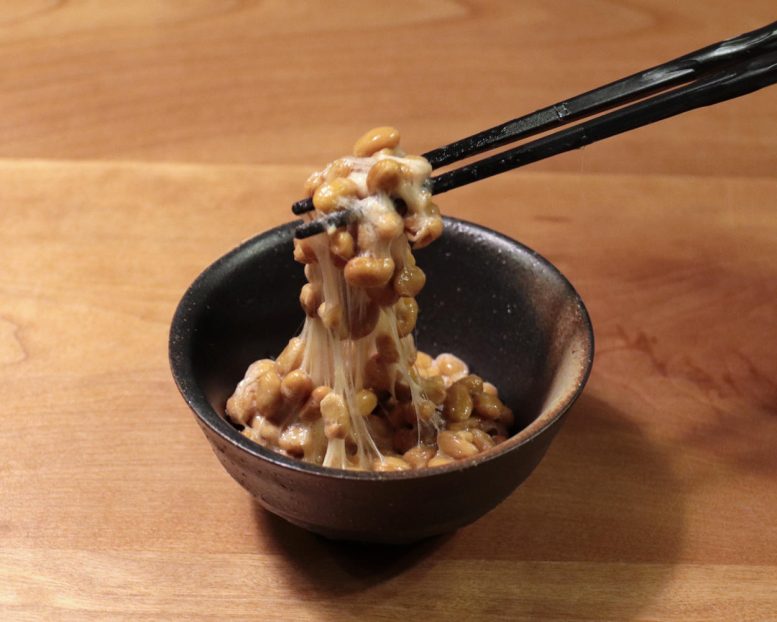
Research indicates that natto, a Japanese fermented soybean dish, may extend lifespan and improve stress resistance due to its Bacillus subtilis var. natto bacteria content. The study implies possible human health and longevity benefits if these effects are transferable.
Consuming natto could potentially aid in alleviating stress.
Health is wealth as the saying goes and now new research suggests that the key to a healthier, less stressed society might lie within easily accessible and affordable food items.
A prime example of such a food is the Japanese dish called natto. This food item is produced from soybeans that have been tenderized through boiling or steaming and subsequently fermented with a bacteria named Bacillus subtilis var. natto. This bacteria can be found in a variety of environments such as soil, plants, animals, and even the human digestive system. Most of the natto consumed in Japan is made from the Miyagino strain.
A research group led by Professor Eriko Kage-Nakadai at the Graduate School of Human Life and Ecology, Osaka Metropolitan University, examined the effects of Bacillus subtilis var. natto consumption on the lifespan of the host using Caenorhabditis elegans worms.

Bacillus subtilis var. natto (Miyagino strain) extends the life span of Caenorhabditis elegans through biological pathways related to innate immunity and longevity, and partially improves stress tolerance. Credit: Osaka Metropolitan University
The researchers found that Caenorhabditis elegans fed Bacillus subtilis var. natto had a significantly longer lifespan than those fed the standard diet, and further elucidated that the p38 MAPK pathway and insulin/IGF-1-like signaling pathway, which are known to be involved in innate immunity and lifespan, were involved in the lifespan-enhancing effects of Bacillus subtilis var. natto. They also examined stress tolerance, which has been shown to have a correlation with longevity, and found that resistance to UV light and oxidative stress is enhanced.
Professor Nakadai concluded, “For the first time, we were able to demonstrate the possibility of lifespan-extending effects of Caenorhabditis elegans through the ingestion of Bacillus subtilis var. natto. We hope that future experiments on mammals and epidemiological studies will help to realize a healthy and longer-living society if we can apply this research to humans.”
Reference: “Impacts of Bacillus subtilis var. natto on the lifespan and stress resistance of Caenorhabditis elegans” by Nao Teramoto, Kanae Sato, Takayuki Wada, Yoshikazu Nishikawa and Eriko Kage-Nakadai, 20 April 2023, Journal of Applied Microbiology.
DOI: 10.1093/jambio/lxad082









And it tastes just like it looks!
I find it to be like weak funky coffeebean slime. There is evidence it reduces cholesterol buildup (“Nattokinase: A Promising Alternative in Prevention and Treatment of Cardiovascular Diseases” PMC6043915), particularly from an enzyme in it, nattokinase, and capsule supplements are available. There isn’t a lot of detail in this article, but you can find natto in square styrofoam containers at the freezer section of some grocery stores.
Why is it that so many apparently healthy foods taste so disgusting?